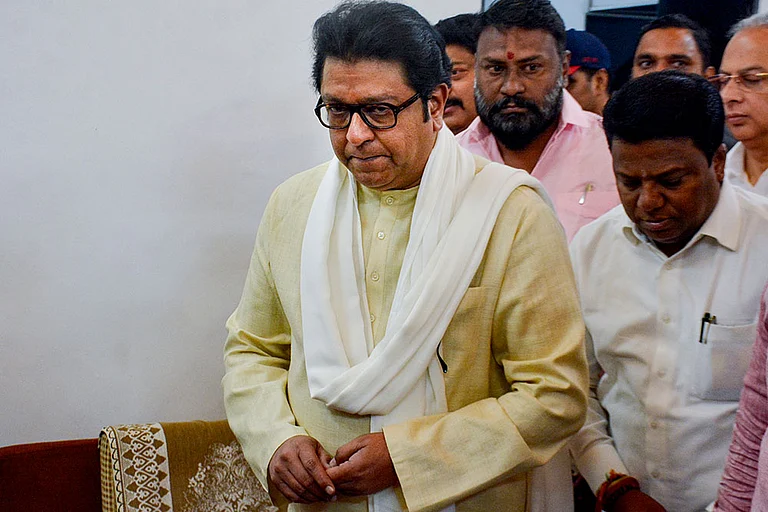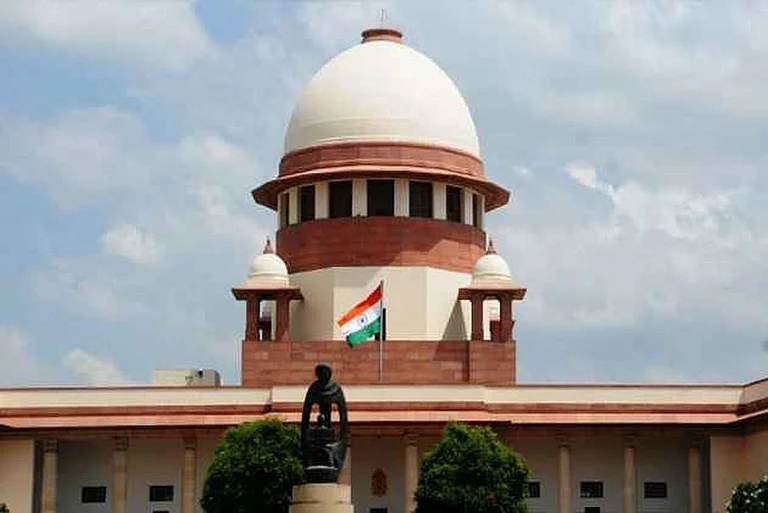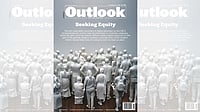Assam Chief Minister Himanta Biswa Sarma on Friday said the third wave of the pandemic along with Omicron variant of Covid-19 has hit the state from January 1 and that the government will treat all fresh coronavirus cases to be of the highly infectious new variant.
Addressing a press conference here, Sarma said that the doubling rate of cases is two days and on some occasions, it's even a single day. "So, we assume that there are lots of Omicron cases in Assam at this moment. We have now decided to consider all positive cases as Omicron and will treat them accordingly," he said.
At least seven more people, including a foreign returnee, have tested positive for Omicron variant of coronavirus in Assam, taking the tally of the new strain to nine, an official said on Friday. On Friday, the total number of cases increased by over 38 per cent over 844 patients detected on Thursday, the National Health Mission (NHM) Media Bulletin said.
The positivity rate also soared to 3.32 per cent against testing of 35,127 samples from 2.37 per cent on Thursday, it added. The number of positive cases in Kamrup Metropolitan district, which primarily comprises the Guwahati city, also rose to 517 from 369 a day earlier. Sarma said that the number of cases in Assam started rising from December 27 and the third wave with Omicron as the dominant variant has hit the state from January 1, while it is estimated that the peak of the second wave (6,573 cases in a day) will be touched by January 20.
"By the end of January, we will reach the peak of the third wave. This will be much higher than the second wave's peak, say 10,000 or 12,000 or maybe even more. So, we've decided to ramp up our testing significantly to trace contacts," he added. Announcing new restrictions, the chief minister said that the night curfew timing has been advanced to 10 pm from 11:30 pm now and it will continue till 6 am, besides the wearing of masks has been made compulsory.
"All schools in Assam up to class 5 will be closed from tomorrow and this will be up to class 8 in Guwahati till January 30. The rest of the classes will take place on a rotational basis on every alternate day," he added. Sarma also said that except for hospitals, only fully vaccinated people will be allowed in public places like hotels, restaurants, cinema halls, government offices, schools, colleges, buses and malls.
"We will be very strict on this. If we find any non-vaccinated or partially vaccinated people in any of these places, there will be a fine of Rs 25,000 on the owner of the establishment. It'll be a kind of curfew for the people who are not fully vaccinated. "For the government employees, if they are not fully vaccinated by January 15, they will not be allowed to come to the office and their salaries will be deducted on a daily basis," he said.
People travelling in two-wheelers and four-wheelers have to be double-vaccinated, Sarma said. The chief minister said that the government is giving thrust on vaccination more as "there is no strategy to control Omicron" and the best way is to minimise the impact of an infected person. "So far, 3.85 crore vaccine doses have been administered. As per our calculations, around 55 lakh people have not taken the second dose of the vaccine," he added.
In case of marriage ceremonies and meetings, only 200 people or 50 per cent of the capacity of the venue, whichever is less, will be allowed, while up to 60 fully vaccinated people per hour for iconic religious places and 40 fully vaccinated persons per hour for other religious places are allowed. For all the inbound travellers in airports and railway stations, COVID-19 testing will be mandatory if the person is not fully vaccinated and samples will be taken from children below 15 years also as the Omicron is infecting the younger generation significantly, the CM said.
"However, the double vaccinated people will have to do a test at their homes on the next day and inform us of the report if it is positive. Then on the seventh day, if there is no hospitalisation, we will consider them as negative even if they do not test again," Sarma said. Talking about the booster dose, Sarma said it will start from January 10 for frontline workers like healthcare and police personnel, and senior citizens who had taken their second dose nine months ago.
With inputs from PTI.
























